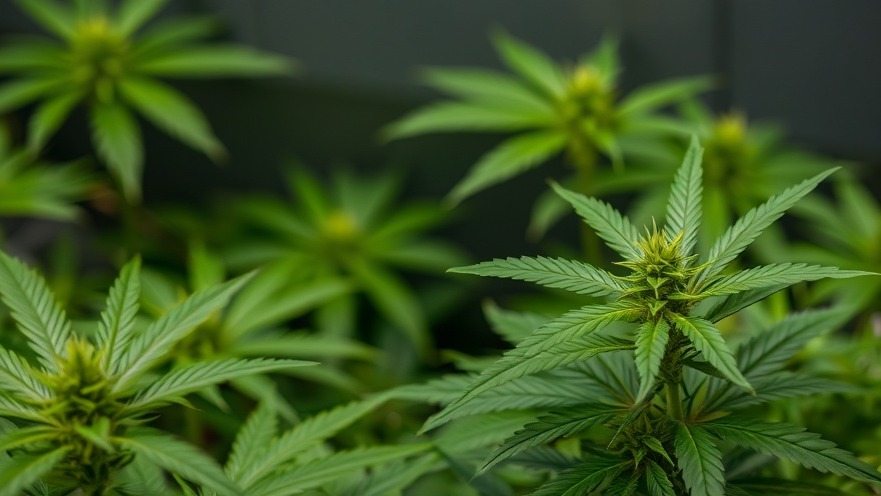
Texas Voters Stand Against THC Ban: A Reflection of Changing Norms
A comprehensive ban on hemp-derived THC products, recently vetoed by Governor Greg Abbott, faces significant public opposition in Texas. A fresh statewide survey from the Texas Politics Project at the University of Texas at Austin reveals that 53% of Texas voters are against the total restriction proposed by Senate Bill 3, while only 31% expressed support for the ban. Among Republican voters, views are more divided with 46% in favor and 39% against. This division highlights an evolving perspective on drug policy within the state's GOP base.
Political Fallout: Abbott vs. Patrick
The veto prompted sharp criticism from Lieutenant Governor Dan Patrick, who had been a staunch advocate for the ban. Patrick's public disapproval underscores a notable fracture in the long-standing rapport between him and Abbott. As they have generally aligned in their tenures, this recent discord may signal a shift in political dynamics, with Patrick emphasizing the potential economic fallout, stating that 8,000 smoke and vape shops could close in Texas as a result. With Abbott's justification for the veto citing concerns over prolonged legal battles, Texas is set for a contentious special legislative session aimed at reconsidering regulatory measures.
Public Sentiment on Marijuana Legalization
The divided opinions among Texas Republicans reflect broader trends in public attitudes toward marijuana legality. Over the past decade, the proportion of Republican voters who believe marijuana possession should never be legal has decreased from 31% to 21%. Contrarily, those advocating for the legalization of small amounts of marijuana have risen from 23% in 2015 to 31% recently. This shift suggests a generational change in views surrounding cannabis usage, independence from party lines and increasing acceptance in largely conservative Texas.
Historical Context of Cannabis Legislation in Texas
Understanding the current debate over THC is rooted in the historical context of cannabis legislation in the state. Texas legalized the sale of consumable hemp products in 2019, a move that reflected a growing willingness to embrace hemp-derived products, including CBD items, amidst the broader national conversation about cannabis reform. The fallout from SB 3’s failure falls on a backdrop of a changing legal and cultural landscape surrounding drugs. As states like Arkansas impose stricter bans and face legal hurdles, Texas must navigate the trade-offs of regulation versus market freedoms.
Implications for Future Legislation and Special Sessions
The political landscape surrounding this issue will likely influence upcoming legislation. Governor Abbott's call for stricter regulations instead of a total ban may reflect an attempt to balance public demand with concerns about health and safety. This forthcoming special session offers an avenue for lawmakers to address voter preferences while considering the economic implications for the expanding cannabis market.
Takeaway: What Comes Next for Texans?
As Texans witness an evolution in marijuana policy discussions, community engagement becomes critical. Awareness campaigns, public discussions, and community forums can equip voters with knowledge about the effects of cannabis legislation on health, economy, and safety. Citizens are encouraged to advocate for their views and participate in upcoming legislative conversations that will shape the future of cannabis regulation in Texas.
Given the pivotal role that public opinion plays in shaping laws, the active engagement of voters in this discourse is vital. Put simply, the outcome of ongoing legislative efforts hinges not only on political alliances but also on the voices of Texans who seek to navigate the complexities of cannabis policy.
 Add Element
Add Element  Add Row
Add Row 



Write A Comment